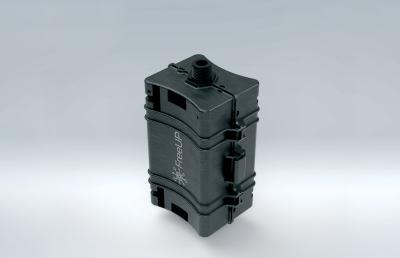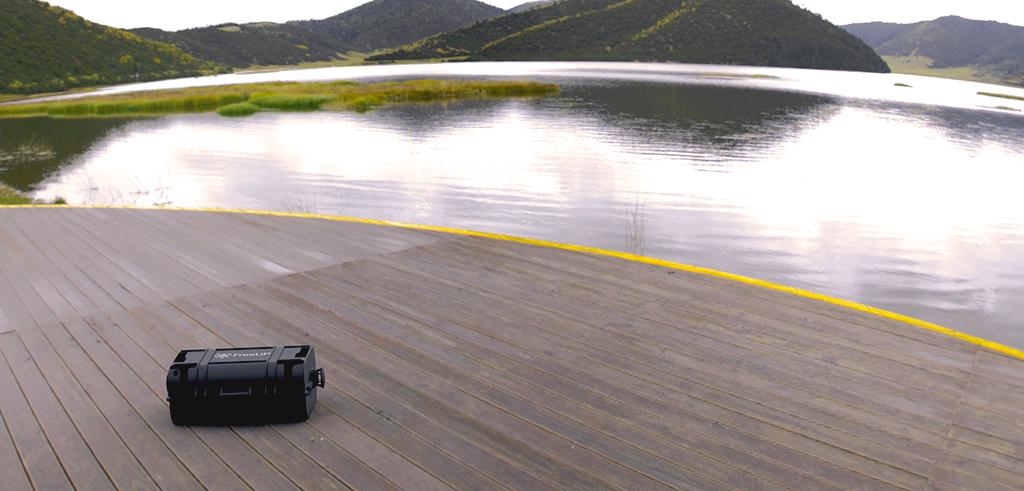- Support portal
- Evaluation Kits and partner products
u-blox Support
- Product documentation
Documentation
- Investor relations
Investor relations
FreeUP - water quality in real time

FreeUP, an innovative start-up that has developed a sensor platform to automate and streamline workflows in the scientific, agricultural, and industrial sectors, recently collaborated with u-blox to develop a communication solution to manage their fleets of water quality measurement devices in the UK.
A land of water
A nation of islands with thousands of kilometres of coastline and over 200,000 kilometres of river systems – where each inhabitant uses approximately 142 litres of water per day for drinking, cooking, and washing1 – it is easy to understand why water quality is important to the people of the United Kingdom.
1 https://www.energysavingtrust.org.uk/sites/default/files/reports/AtHomewithWater%287%29.pdf
So much so that throughout the summer bathing/swimming season (15 May to 30 September), the UK Environment Agency monitors water quality along the coastlines, checking for Escherichia coli and intestinal enterococci or other potential hazards to swimmers’ health in designated areas. Until recently, UK rivers have not been a part of the water quality monitoring scheme, but this is changing after an alarming Water quality in rivers report in 2022 by the UK Parliament Environmental Audit Committee.
Founding FreeUp
Tom McNamara grew up in the great outdoors of Wales before completing a Master’s degree in Chemistry at the University of Oxford and then a Doctorate in Biomedical materials at The University of Manchester. He did a stint in the chemical sector and then worked for a few years as an academic researcher in the physical sciences, such as hydrogen fuel cells and computational modelling.
“I know how various scientific measurements are made and have a fundamental appreciation for – if you wanted to measure X – this is how you would do it theoretically to then work backwards from there.”
And then Tom started FreeUP, “We have all this fantastic scientific knowledge which is rarely used,” explains Tom. “It’s sometimes frustrating because generating this knowledge should be the difficult part, and actioning it, building technology and solutions should be straightforward.” The team at FreeUP is working to make it easier to measure and gather water data at global scale, to make that data easily accessible and useful so that humanity can benefit from insights at a much broader level.
While visiting an agricultural college just after founding FreeUP, Tom closely looked at how water sensing was done and was surprised when he found out that one sensor cost almost the same as a car in the UK. Thinking there was no fundamental reason why such sensors needed to be so expensive, the FreeUP team started tinkering. It wasn’t long before Tom reached out to the UK Environmental Agency and pitched a pilot program to prove that water quality sensor devices (SONDES) could be produced and operated at a significantly reduced cost.
FreeUP’s technology has been tested in rivers, lakes, and oceans. If the body of water is more than 20cm deep, FreeUP can measure it as long as a signal is available. Some river data in the UK has gone from being collected once every three months to being collected and transmitted in real time every 30 minutes. Getting water quality information in real time from a particular river or an entire region is now possible.
In the past, one of the high cost aspects of the production of water quality sensor devices were the required base stations and communication infrastructure for data and image streaming, which often resulted in data bottlenecks and much higher production and operating costs.
“We needed a low power IoT solution with streamlined communication out of the box so that anyone could deploy them, and we found u-blox products are very compatible with this philosophy.”
Customers now purchase FreeUP fleets
FreeUP proved they could make the devices low cost, out of low cost materials, and yet reliable and highly effective. They are now trending towards making their devices almost recyclable in terms of cost so that they can be deployed at scale, reaching far more bodies of water and resulting in greater data collection. Customers now purchase FreeUP’s sensors in fleets available in different sizes for different applications.

Easy to deploy FreeUP water quality sensor fleets transmit data in real time
“In the future, before we go to the beach, we will be able to check the water quality in real time just like we check the weather before we go out today.”
A second form factor for drinking water network pipes has been developed to assist water utilities in monitoring water quality without digging up the roads and enabling utilities to preempt events before they affect customers. Another application is for water reservoirs to measure microbes as indicators of water safety and for this data to also help wild swimmers and other public groups enjoy wild water safely.
First the UK, then beyond
FreeUP’s go to market plans are firmly focussed on the UK for now, where they are producing their hardware. Key target markets are providers of water, industries that use a lot of water, and the public who drink, bathe, and swim in it. However, the problems they are solving are global, and they plan to deploy to other countries once UK deployments have scaled up, as ensuring access to clean water is critical to us all.
Learn more: https://freeup.world/